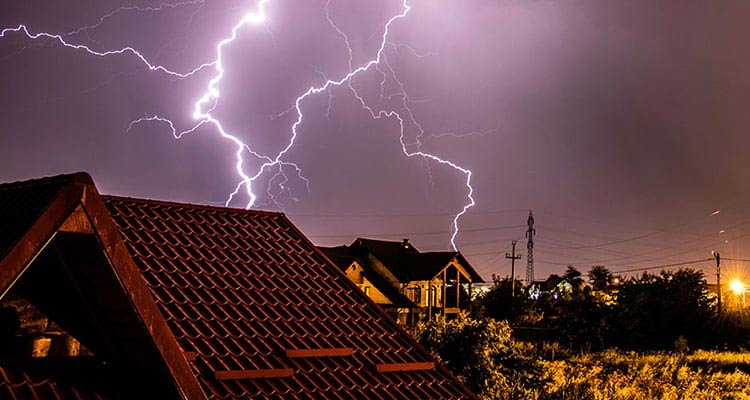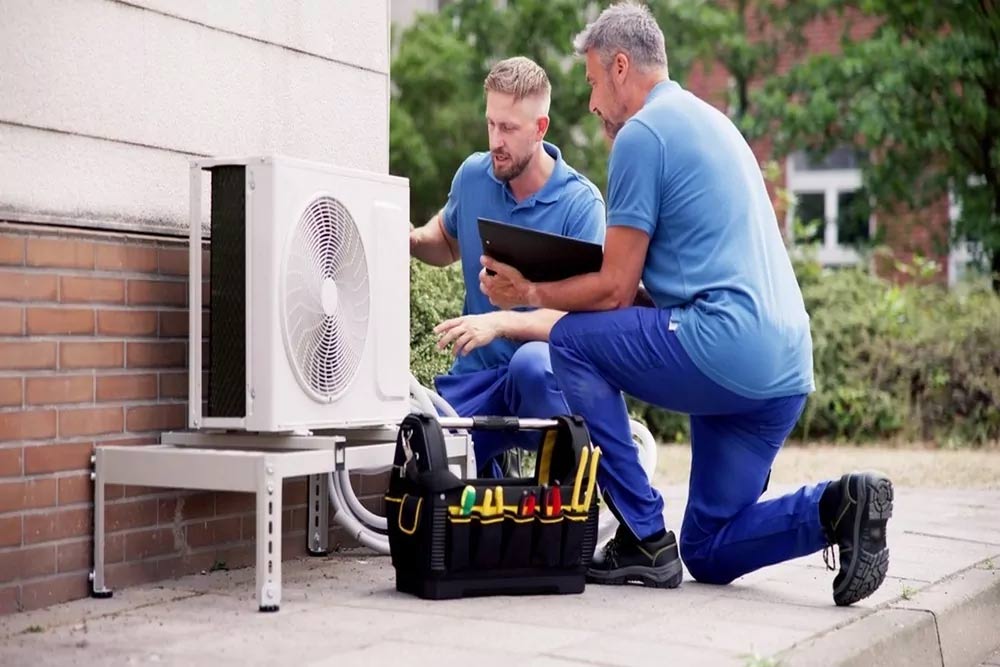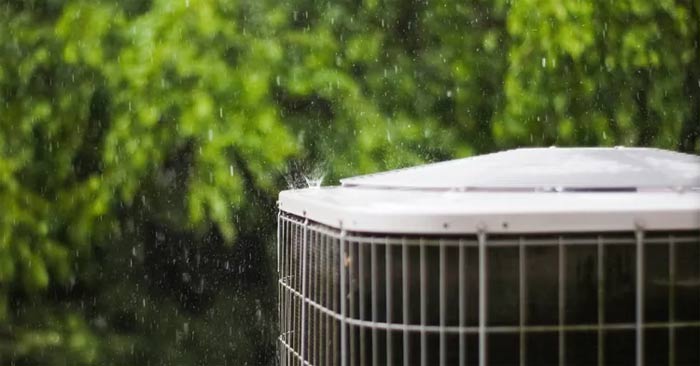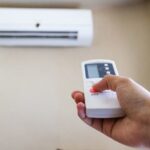Should You Keep Your Air Conditioner On During a Storm?
Why You Should Avoid Running Your AC During Summer Storms and What Could Happen If You Don’t
Should You Keep the AC On During Summer Storms?
If you see or hear thunder and lightning nearby, you should turn off your AC at the thermostat and shut off the breaker for your AC system at the electrical panel, advises Danny Pen, a seasoned expert on plumbing and HVAC systems and President of New Era Plumbing & HVAC.
“Even if you have a whole-house surge protector, you should still turn off your AC during a storm,” Pen says. While turning your AC off during a storm doesn’t guarantee that your AC equipment or electrical system won’t be affected, it does increase the risk of damage to electrical components and systems from power surges, flooding, and blown debris.
Running an air conditioner during a storm can lead to costly repairs or even require a full replacement of the unit. Lightning strikes and power surges can damage the compressor, while flooding and debris can block airflow and harm crucial components like the coils and fans.

What Happens If You Leave Your AC On?
Choosing to leave your AC running during a summer storm increases the risk of damage from direct lightning strikes and power surges. “Lightning can damage the AC compressor, and replacing it can sometimes cost nearly as much as a new condenser unit,” Pen says. “In some cases, it can fry the entire AC system, burning wires, and even destroying anything else that’s turned on or plugged in.”
Flooding and blown debris are also more likely to damage a running system than one that’s turned off, especially if debris blocks airflow or damages the coils, fans, or other parts of the unit.
High-voltage power surges can overwhelm electrical resistance, melting outlets and damaging capacitors, compressors, outdoor fans, and control panels. The damage can extend beyond the AC unit to other parts of the heating and cooling system, including the thermostat. Even low-voltage shorts can destroy the furnace control board.
Are There Any Safe Settings for Storms?
There’s no setting that will allow you to safely run your AC during a storm to protect against lightning strikes and power surges. So, it’s best to turn off your AC until the storm passes. Remember, the reason to turn off your AC has nothing to do with attracting lightning strikes. It’s all about protecting your equipment from power surge damage if lightning strikes nearby. Power surges can travel through your home’s electrical circuits and damage any plugged-in appliances.
What to Do Before and After a Summer Storm
- If you know a storm is coming within the next 24 hours, you can set your AC temperature a few degrees lower beforehand to keep your home comfortable before you have to turn it off.
- After turning off your AC, you may also want to cover the unit with a tarp or plywood to protect it from debris during severe storms.
- Once the storm has passed, inspect the unit for damage before turning it back on. Clear any debris that might obstruct damage or block airflow through the unit.
- Consider hiring a professional to inspect your AC if there’s been flooding inside or around the unit to ensure no long-term damage that could harm the electrical system if the unit is turned on.

Other Times You Should Avoid Running Your AC
Storms aren’t the only situation when you should avoid running your AC. It’s also helpful to turn off your AC when you’re away for a few days, during wildfires or heavy smog, as your AC can draw in contaminated air. Similarly, it’s necessary to turn off your AC during a power outage, as power surges can occur when the electricity comes back on, potentially damaging your AC unit.
Should You Leave Your Doors or Windows Ajar During a Storm to Prevent Roof Damage?
As Typhoon Yagi makes its way inland, a curious piece of advice has been circulating on social media. Some people are suggesting that, in the event of a typhoon, one should leave their windows slightly ajar or open a door to reduce air pressure inside the house. This, they claim, will lessen the likelihood of roof damage, broken windows, and other storm-related havoc. But is there any truth to this advice, or is it just another storm in a teacup?






































